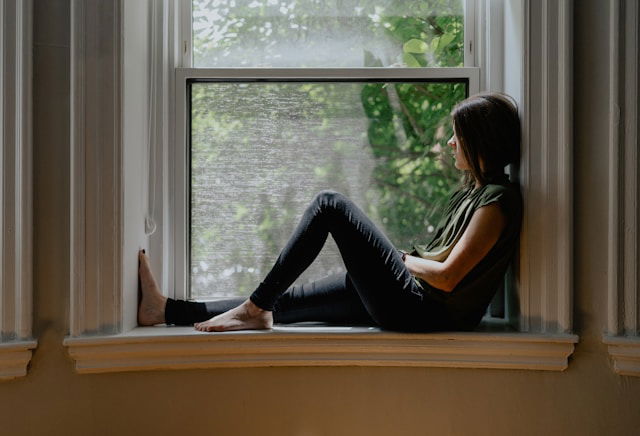After the divorce, my dad always chose his new family’s kids first, so I decided to teach him a lesson he would never forget. This story shows how a child’s hurt turns into a moment of self-discovery and empowerment.

My parents divorced when I was four, but at first, my dad kept things simple and steady. We had an arrangement: I lived with my mom, and he had weekends with me. He called often, picked me up on Saturday mornings, helped me with homework, and sometimes even read bedtime stories over the phone. I believed that even though he wasn’t living with us anymore, he would always be there for me.
Then he met Jane. She had three children, Logan, Tyler, and Emma, and suddenly his house no longer felt like mine. I was just a guest. At first, he tried to include me: birthday parties, and game nights. But it wasn’t hard to spot the difference. I wasn’t part of their inside jokes, I wasn’t on the family canvas they painted and hung on the wall. Mine was missing. I told myself it was just awkward at first.
Then he started canceling on me. “Sorry, pumpkin, Logan’s got a soccer game today,” he’d say when he was supposed to pick me up. Or, “Tyler wants to go to the play center. You understand, right?” One day, I asked if we could catch a movie together. He replied, “We already saw one this week.” Every time I complained, he told me, “We are doing family things. You should be happy! Your events are not as fun.” I felt like the odd one for wanting my own dad’s attention.
When I was thirteen, I used my babysitting money to buy concert tickets for a band we both loved. I thought it would bring me closer to him, but when I mentioned the show, he promised to pick up his ticket and come with me. Three days before the concert, I called him. “About that… Emma’s been begging for her room to be repainted. I spent the money on supplies.” I sat there, the phone in my hand, and my heart shattered.
A few weeks later, I fractured my arm climbing an old oak tree. I was in the hospital, constantly watching the door, waiting for him. He never came in. Instead, he replied to Mom: “Tell her I’m proud of her.” I wondered, proud of what? Being in pain without him? I later learned Jane’s daughter had tonsil surgery that same day.
When I tried to tell him how much this hurt, he brushed it off and called me jealous. “It is not all about you anymore,” he said, as if wanting his attention was selfish. That broke me. Mom, on the other hand, never stopped showing up. She worked extra shifts, cheered the loudest at my school events, learned to braid my hair, gave me late-night snacks, and stayed up with me when my nightmares would not end.
That’s when it hit me: I was a backup plan. A convenience. An afterthought. So I stopped chasing. I let Mom borrow some money and made it to the concert alone. That day, I decided: No more begging for a man who could not be bothered to stay.

Years later, I walked across that graduation stage. I held my head high. My heart was steady. And at my party, surrounded by people who truly loved me, Dad showed up, actually showed up, for the first time in years. I gave him a small nod of acknowledgment. He looked relieved.
Later, he pulled me aside. “I have been a terrible father,” he said, tears in his eyes. “I’ve missed birthdays, recitals, scraped knees and big milestones. And I know I cannot undo any of it. But I want to try.”
I studied his face. “Why now, Dad?” I asked. “What changed?”
He looked at my mom’s face across the party. “That night I chose stepkids over you. I thought I was doing right by them. But I forgot you mattered too. That’s on me.”
I didn’t forgive him that day, not fully. Words aren’t enough. But I saw something in his eyes I had not seen before. I asked: “If you’re sorry, show me. Show me you will be here going forward.” Over the next few months, he began coming to appointments, to small events. He called just to check in. Baby steps. And when I became a parent, he was in the waiting room. And when I handed him his first grandchild, he looked at me and whispered, “I wasn’t the father you deserved. But I will try to be the grandfather he needs.”
It was imperfect. Our relationship was still fragile. But at that moment, I felt hope. Maybe people can learn. Maybe they can change.
This story shows how love, absence, and finally boundaries can lead to healing. It’s a reminder: Being there matters more than best intentions. And finding your worth can come from standing alone, until people show they’re ready to stand with you.
